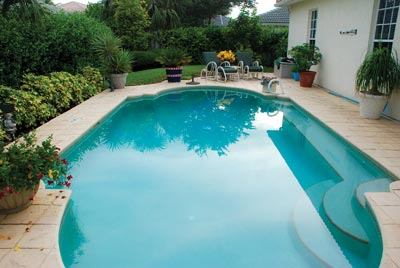In Florida, questions are being raised over a new building-code requirement for existing residential pools.
The state mandate calls for pools or inground spas whose circulation systems undergo signification alteration to comply with Section 6 of the ANSI/APSP-7 standard for suction entrapment avoidance.
This includes installation of new drain covers and backup systems.
But in a state whose economy remains tenuous, and where underground pool and spa activity is more widespread than ever, contractors can’t help wondering how their customers will respond to additional expenditures.
“I think it could absolutely lead to a greater use of unlicensed contractors,” said Roger Mann, owner of Care-Free Pools in Naples, Fla. “When homeowners go to weigh the odds, I think they’re going to look for a way around it.”
Safety can often be a tough sell, but it’s made all the more difficult when technical matters such as flow rates are raised.
“People don’t always know what you’re talking about — they’re frequently at the mercy of the person in their backyard with respect to what they’re being told,” said Steve Bludsworth, owner of All Pool Service & Supply in Orlando, Fla. “And in terms of suction-entrapment, it’s something that isn’t tangible to people, so it doesn’t seem dangerous to them.”
The requirement is expected to take effect on Dec. 31, 2011. But industry advocates were quick to note that just because a provision is added to the state building code, doesn’t mean it’s set in stone. While a code provides guidance for building standards, it’s the building officials themselves who decide how to enforce those mandates.
“There’s no uniform permitting, so this is not dictating how it’s going to be throughout the state,” said Jennifer Hatfield, principal of Sarasota, Fla.-based J. Hatfield & Associates, which specializes in advocacy work for the industry.
“We understand there are still questions about how this will be enforced and, clearly, combating unlicensed activity is a very important initiative for the Florida Swimming Pool Association,” she added. “But we basically took a proposal and tried to make it consistent with our national standards and pool safety. So we know the code is not a perfect document, but it serves as a guideline that should be aspired to.”
And contractors have found that homeowners can be receptive to safety requirements. In Brooksville, Fla., 50 miles north of Tampa, Scott Amundsen said many of his clients have children, and therefore understand the importance of protective measures.
“Plus, those that don’t have children or grandchildren, they’re fearful of being taken advantage of,” added the owner of Condor Pools, Spas and Billiards. “So my experience is that homeowners have become a little more suspicious, in that they want to make sure they’ve got someone reputable working for them. It’s one of the reasons I now carry my liability insurance and my license everywhere. I never had to do that before.”




